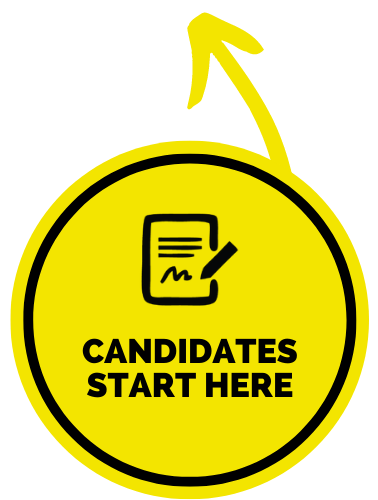
The hiring process is tough. Not just because of the added pressure of having to look for and train up a new team member, but also because of the sheer number of people you have to talk to and screen. Hiring mistakes are costly – sometimes reaching up to 5 times the salary of the person you hired. That’s why it’s important to spot a hiring red flag well before the offer stage. Here are 5 of the most common ones:
Hiring Red Flag 1: The candidate isn’t prepared
Anyone on the job market will tell you that looking for work is hard. Beating out all the competition out there to get to the interview stage is a huge feat. So, if a candidate arrives to an interview late, dressed inappropriately, or clearly haven’t taken the time to look up your company or prepare questions for you, it should be a red flag.
There are exceptions – sometimes things outside of the candidate’s control happen – but the candidate should communicate these with you. It should be fairly simple to spot the difference between someone with the best intentions and worst circumstances and someone who doesn’t actually care about the opportunity.
Hiring Red Flag 2: The candidate doesn’t own their past mistakes
When you bring up a hiccup in the candidate’s past career, like a dismissal for instance, does the candidate own up to and explain their past mistakes? Do they lay out the steps they’ve taken to prevent it happening again? Or do they blame shift and refuse to acknowledge any wrongdoing? This could be a sign of how they would react to their mistakes if you hire them. Take note of how they react when you answer these kinds of questions.
Hiring Red Flag 3: The candidate complains/gossips about previous role
Does the candidate complain excessively about their previous employer? Does it seem like every time they bring up their previous work it’s to gossip about the people they worked with? This is a huge hiring red flag. There is nothing wrong with a candidate having disagreements and conflict in their previous role. But this should be used as a springboard to discuss how they handle and resolve conflict. If it seems like there was no attempt at resolution from the candidate’s side, it’s probably a sign that they would be harmful for the wellbeing of your team.
Hiring Red Flag 4: The candidate is rude or unprofessional
A candidate who is serious about the opportunity on the table will be respectful, engaged, and ready to answer any and all questions professionally. They want to give you the best possible view of them. If the candidate is rude, overly familiar, withdrawn, or disengaged, it should concern you. It’s probably a sign that they don’t actually care about your company or the role.
Pay attention to their body language and how they conduct themselves in the interview. This is also where you pick up on how well they listen, their communication skills, and how they are around other people. If anything seems off or concerning, it’s worth looking into why. It might be a sign that they’re not right for your team.
Hiring Red Flag 5: The candidate can’t explain their previous work
Candidates should have a good idea of what their previous roles entailed. After all, they were the ones doing the work. When you ask about their previous work, are they vague on the details? Do they not seem to know what you mean, despite the information being on their CV? This could be a sign that there was a disconnect in the way they approached their previous work. Or, it could be a sign that some of the information on their CV was exaggerated. According to research by Checkster, as many as 78% of applicants lie on their CV in some form or another. If something seems off in how the candidate responds when asked to talk about their previous work and achievements, it’s possible that this information was fudged on their CV. And if you’re already concerned about their honesty and authenticity at the interview stage, it’s probably not a great idea to proceed with the process.
Remember:
Every case is different and it’s possible that there are some cases where these things can be explained or excused. But for the most part, if something strikes you as wrong or unusual in an interview, it’s a good idea to do some further digging before you make your decisions. Running a background check is a great way to confirm your suspicions one way or another. At the end of the day, you need to do what you think is best for your team. If you have a bad feeling about a particular candidate based on their behaviour in the interview, you might want to go with your gut.









